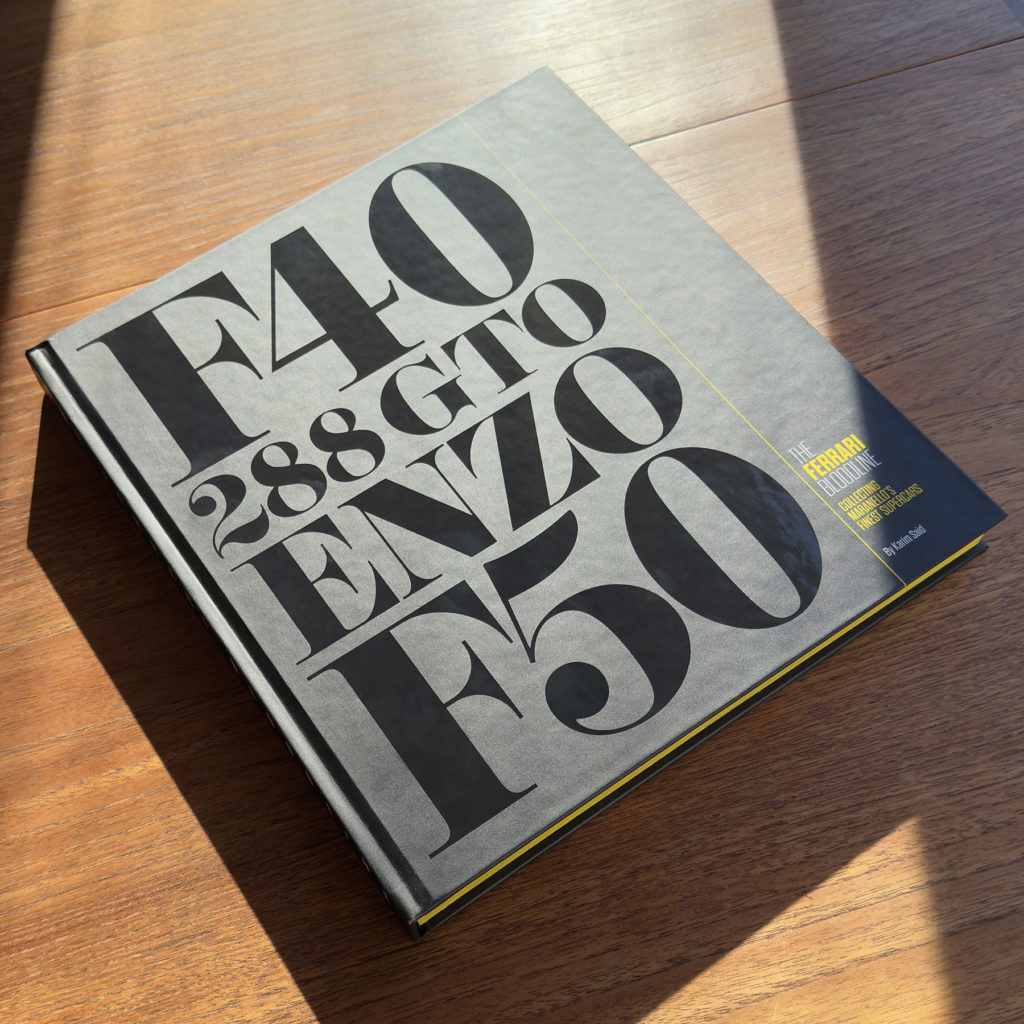
Collecting the flagship Ferraris
An in-depth analysis
Building a car collection
Desirable models & exceptional cars
Two guiding principles were used when building the Bloodline Collection: choosing desirable models and buying exceptional examples of the chosen models. Karim presents a methodology to ascertain the attractiveness of Ferrari models based on driveability factors, which are substantive and are related to the performance as well as the depth of engagement and emotions that the car generates in addition to collectability factors, which are intangible aspects like exclusivity through low production. For buying cars of very high quality, Karim devised an assessment called “dimensions of quality”, which analyses the car’s condition against 10 key attributes: mileage, condition, originality, maintenance & care, provenance, documented history, featured media & events, books & manuals, toolkits and accessories. The first chapter offers insights into these two guiding principles with many examples featuring the 288 GTO, F40, F50 and Enzo.
Fabulous Ferraris
Experts reviews and star cars
In the world of supercars, there are few more illustrious or sought-after names than the four models in the Ferrari Bloodline. Here, some of the best automotive experts in the business tell the unique story behind each model. Numerous Bloodline Collection cars are also brought to life through stunning photography.
Under the skin
Examining the condition in detail
The quest for perfection
Refurbishment and micro-detailing
How do you raise the quality of something as beautiful and desirable as a Ferrari from the Bloodline Collection? To answer this question, Karim has adopted a method that’s very different from the traditional nuts-and-bolts restoration. Firstly, the improvement in the physical condition of each car is through sympathetic refurbishment and micro-detailing instead of a restoration to ‘new’ via the replacement of many original parts. Patina should be preserved as it is the sign of natural ageing that all things encounter. So, any improvement should be considered against the preservation of originality. Secondly, perfection extends beyond the physical condition of the car. Rather, it embraces many of the other aspects of quality like having an impressive history, excellent maintenance and care over long-term ownership, correct toolkit, and a complete set of accessories. All this and much more is explained in detail in this chapter, with many examples, notes and detailed photography of the processes involved.
Toolkits & accessories
Beautifully bespoke collector items
Chapter 5 covers the exclusive toolkits and accessories that accompanied each of the four iconic Ferrari models. The chapter is split into two: part one shines a light on some showpiece items – from the F50’s racing boots to the 288 GTO’s luggage – and stories behind them; part two is a comprehensive reference guide to the full range of books and manuals, toolkits, accessories, launch brochure and press material for each of the 288 GTO, F40, F50, and Enzo models.
Knowledge is power
a window into the life of a supercar
If you were the buyer of a multi-million-pound Ferrari supercar, what information would you like to know about it? And as a seller, surely you would want to fully describe your supercar in a comprehensive, organised and clear way. This chapter provides a simple framework for how to do that. It is based on describing the supercar along all the dimensions of quality discussed in chapter 1.
It’s a Numbers Game
Investment insights
The 288 GTO, F40, F50 and Enzo are not only beautiful to look at and exhilarating to drive, they can also deliver valuable return on investment. This chapter looks at the primary costs (purchase, holding, and sale); total costs in buying at auction, as well as duties taking cars to different countries; value growth of each model over the short-, medium-, and long-term; and finally, the transformational shifts in the market that are changing the supercar scenery. A supercar valuation framework, with premia and discounts corresponding to each key dimension of quality, is also introduced.